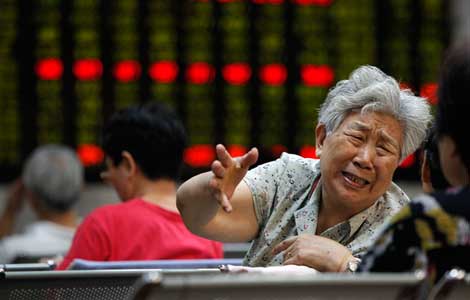Market volatilities shake global recovery
Updated: 2013-07-30 09:13
By Hong Liang (China Daily)
|
||||||||
"The debate between growth and austerity seems to have come to an end, as captured in the G20's strong statement on growth and jobs," a senior US Treasury official was quoted by Reuters as saying. The communiqu issued by finance ministers and central bankers at the Moscow meeting acknowledged the benefits of expansive monetary policies, called quantitative easing, in the US and Japan.
An economic recovery is widely seen to be gaining traction in the United States. In Japan, the ruling party of Prime Minister Shinzo Abe has gained political capital in the latest parliamentary election to push ahead with its expansive economic policy, which is reportedly gaining wider public support.
But the International Monetary Fund has sounded a warning about the deepening threat of global market turbulence, noting that the stagnation in the eurozone and slowing growth in the emerging markets, particularly China and Brazil, could snag global growth. "Global economic conditions remain challenging, growth is too weak, unemployment is too high and the recovery is too fragile," IMF Managing Director Christine Lagarde told reporters in Moscow. "So more work is needed to improve this situation."
Emerging markets in Asia have escaped the financial tsunami that engulfed some developed economies. But they have been hit to various degrees by the slowdown in global demand for a wide range of consumer goods and raw materials.
The prevailing opinions emerging from the G20 meeting seem to suggest that a global economic recovery is still some years away. The biggest potential threat facing emerging markets is widely believed to be the winding down of the quantitative easing programs in the US and Japan that could trigger a massive outflow of capital.
The G20 statement said: "While our policy actions have contributed to contain downside risks, those still remain elevated. There has been an increase in financial market volatility and a tightening of conditions."
Most Viewed
Editor's Picks

|

|

|

|

|

|
Today's Top News
Families of crash victims to sue Asiana in the US
Detroit: Gold mine for China
Major SOEs eye profits from abroad
Train collision kills at least 44 in Switzerland
Sino-Japanese summit ruled out
Manila's base plan targets China
Hun Sen's party win to stabilize situation: expert
Beijing plans $81b shantytown renovation project
US Weekly

|

|















